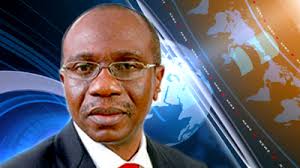The Central Bank of Nigeria (CBN) said that it would withdraw N500 billion from the banking system through the recent increase in the cash reserve requirement of banks.
Deputy Governor (Corporate Services), CBN, Mr. Bayo Adelabu, disclosed this while addressing members of the House of Representatives Committee on Banking and Currency on an oversight visit to the Lagos office of the Bank.
Recall that the Monetary Policy Committee of the CBN on Tuesday in addition to devaluing the naira by 8.3 percent to N168 per dollar, raised the Monetary Policy Rate (MPR) to 13 percent from 12 percent, and the cash reserve requirement to 20 percent from 15 percent.
The decision to raise the MPR was however queried by members of the House Committee led by their chairman, Hon. Chukwudi Jones Victor Onyereri. They faulted the decision saying it would lead to further hike in lending rates charged by banks in the country.
Adelabu however defended the decision of the apex bank saying, “The decision of the MPC was the best we could do under the circumstance the economy is presently.”
He said, “We noticed that a lot of things contributed to the pressure on the naira. Number one factor is the declining revenue from oil. Our source of revenue in this country is just oil and when oil price declined by about 25 per cent in the last one month, we expected that there would be pressure on the foreign reserves. We believe that the pressure on the naira, apart from the declining oil prices is also as a result of liquidity in the banking industry whereby a lot of frivolous demands for foreign exchange are being made by customers of banks, because the banks are able to extend credits to them. We are saying no. We want you to lend to the critical and productive sectors of the economy not trading, not to import toothpicks. So we are saying that the only thing we can do to reduce the capacity of the banks to grant loans to these customers for trading is to mop up more of the monies available to the banks, which is why we increased the CRR on private sector deposits to 20 percent from 15 percent, which will amount to about N500 billion withdrawal from the banking industry.
“We believe it will reduce the pressure on the foreign reserves. If we don’t do that, the impact on the common man is going to be increased cost of production. What the CBN is saying is that we need to become more patriotic. We should patronise locally made goods and services. We do not need to be importing everything. That is part of the pressure on the naira. Why should we be importing fruits, eggs, and tooth picks?”
CBN warns against counterfeiting of Naira
Meanwhile, the Central Bank of Nigeria (CBN), has warned members of the public against counterfeiting the naira.
The CBN Governor, Mr. Godwin Emefiele gave this warning yesterday in Abuja, while declaring open the maiden temporary exhibitions of the Currency Museum on “Counterfeit Money: Who Pays?” and “Non-Interest Banking in Nigeria” held at the Bank’s auditorium.
Represented at the event by the Deputy Governor in charge of the Operations Directorate, Alhaji Suleiman Barau, Emefiele noted that educating the public would enable them identify counterfeited notes should they encounter such.
According to him, the CBN remains committed to safeguarding the value of the Naira by ensuring that banknotes are not susceptible to counterfeiting.
In his opening remarks, the Director, Currency Operations Department of the CBN, Mr. Olufemi Fabamwo, observed that technological advancement posed a serious threat for national currencies to be counterfeited.
He, however, stressed that the CBN was alive to its role of protecting the country’s legal tender from counterfeiting by putting in place appropriate policies relating to preventing and minimizing currency counterfeiting as well as providing the public with basis for easy identification of fake notes.
On the second subject of the exhibitions, Fabamwo noted that the concept of non-interest banking was largely still being misunderstood in Nigeria. While disclosing that the activities of non-interest banks are duly regulated by the CBN, he urged stakeholders to embrace the products offered by non-interest banking, which he noted are universally accepted and profitable to customers.
Highlight of the ceremony was the cutting of the tape to formally declare open the exhibition. This was followed by a guided tour of the museum performed by the curator, Mrs. Juliana Elugbadebo.

